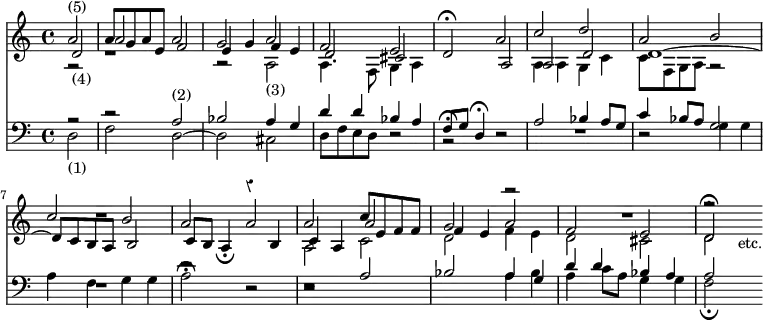QUODLIBET (Lat. 'What you please'), also called Quotlibet ('As many as you please'), and in Italian Messanza or Mistichanza ('A mixture'). This was a kind of musical joke in the 16th and early part of the 17th centuries, the fun of which consisted in the extempore juxtaposition of different melodies, whether sacred or secular, which were incongruous either in their musical character, or in the words with which they were associated; sometimes, however, the words were the same in all parts, but were sung in snatches and scraps, as in the quodlibets of Melchior Franck. (See Praetorius, Syntagma Musicum, tom. iii. cap. v.) There were two ways of performing this: one was to string the melodies together simply and without any attempt at connecting them by passages such as those found in modern 'fantasias'; the other, the more elaborate method, consisted in singing or playing the melodies simultaneously, the only modifications allowed being those of time. The effect of this, unless only very skilful musicians engaged in it, must have been very like what we now call a 'Dutch chorus.' This pastime was a favourite one with the Bachs, at whose annual family gatherings the singing of quodlibets was a great feature. (See Spitta, 'J. S. Bach,' i. 152, ii. 654.) Sebastian Bach himself has left us one delightful example of a written-down quodlibet, at the end of the '30 variations' in G major, for a detailed analysis of which see Spitta, ii. 654. The two tunes used in it are 'Ich bin so lang bei dir nicht gewest,' and 'Kraut und Rüben, Haben mich vertrieben.' One of the best modern examples, although only two themes are used, is in Reinecke's variations for two pianos on a gavotte of Gluck's, where, in the last variation, he brings in simultaneously with the gavotte the well-known musette of Bach which occurs in the third 'English' suite. A good instance, and one in which the extempore character is retained, is the singing of the three tunes 'Polly Hopkins,' 'Buy a broom,' and 'The Merry Swiss Boy,' together, which is sometimes done for a joke. A very interesting specimen of a 16th-century quodlibet by Johann Göldel, consisting of five chorale-tunes viz. (i) 'Erhalt uns, Herr bei deinem Wort,' (2) 'Ach Gott, vom Himmel,' (3) 'Vater unser im Himmelreich,' (4) 'Wir glauben all,' (5) 'Durch Adam's Fall' is given as an appendix to Hilgenfeldt's Life of Bach. We quote a few bars as an example of the ingenuity with which the five melodies are brought together:—

[ J. A. F. M. ]